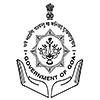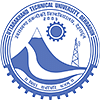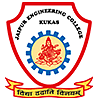Architecture Entrance Exams
An undergraduate bachelor's degree programme in architecture is available to those interested in the planning and designing processes associated with architecture. The art and science of all structural forms are included in the field of architecture. A skilled architect must have the capacity for logical thought and reasoning, as well as the capacity for problem-solving. Regarding employment opportunities, architecture is a booming industry with various fields in which aspirant architects can work, including interior designers, project architects, urban planners, project managers, etc.
Students must have completed their class 12 examinations with a minimum of 50% marks, with Mathematics counted as one of the courses, to be eligible to enrol in a Bachelor of Architecture study. At the state, national, and university levels, numerous colleges and universities in India hold architecture entrance exams. The top institutions and particular conducting bodies established by the government administer the admission tests at the federal and state levels. Because there is such a strong demand for architectural courses among students, there must be fierce competition for admission. We've compiled a list of some of India's best architecture entrance tests for students seeking admission to architecture programmes.
Architecture Entrance Exams in India
In the presence of a physical environment, architecture is a part of it. It is an essential field that introduces the art and science of buildings, malls, complexes, residential or other structures. A profession in architecture is commendable for the possibilities of starting one's own business or designing systems in various facets of the industry.
Top architecture entrance exams in India judge candidates on math, physics, thinking and reasoning skills, analytical skills, design/building/construction knowledge, and others. The competitiveness in the domain of architecture has struck the next level. Students and colleges need a particular medium to get the right college or the right candidates, respectively. So, architecture entrance examinations are the easiest way to do this across the country.
Top Architecture Exams in India
Over time, entrance exams are compulsory as it examines academic readiness and required skills. Check out the list of top architecture entrance exams in India for various levels alongside their dates below, and prepare with a strategized routine.
|
Exam Name |
Course Offered |
Conducting Authority |
|
JEE Main |
UG |
NTA |
|
JEE Advanced |
UG |
IIT Kharagpur |
|
NATA |
UG |
CoA |
|
KEAM |
UG |
CEE, Kerala |
|
COMEDK UGET |
UG |
COMED-K |
|
PGCET |
PG |
KEA |
|
TS PGECET |
PG |
TSCHE |
|
KIITEE |
UG/PG |
KIIT |
|
TANCET |
PG |
Anna University |
|
WBJEE |
UG |
WBJEEB |
JEE Main
The National Testing Agency administers JEE Main, one of the most well-known and challenging entrance exams in India, for admission into undergraduate engineering programmes at Centrally Funded Technical Institutions (CFTIs), including NITs, IIITs, GFTIs, and others.
The test is administered twice a year. Students must have at least a 75% grade point average in class 12 with Mathematics, Physics, and Chemistry as required courses in order to take the JEE Main Paper 2 test, which covers the subjects of Architecture and Planning. The three-hour JEE Main Paper 2A, which is based on architecture, has parts for mathematics, aptitude, and drawing.
JEE Advanced
Students who desire to apply for admission to Bachelor of Architecture programmes at either IIT Kharagpur or IIT Roorkee must take the JEE Advanced Architecture Aptitude Test (AAT). To be eligible to apply for the JEE Advanced exam, interested students must first have a rank between 1-250,000 on the JEE Main exam. Students can sign up for the Architecture Aptitude Test if they have passed the JEE Advanced exam. Three-dimensional perception, architectural awareness, freehand drawing, imagination, and aesthetic sensibility are major topics addressed in the three hours long online AAT exams.
NATA
The National Aptitude Test in Architecture (NATA) is a national-level exam administered twice yearly by the Council of Architecture to qualifying applicants for admission to Bachelor of Architecture programmes at institutions around the nation. The three-hour NATA exam is administered online and consists of objective-type questions in the field of general aptitude.
To be eligible to apply for the NATA exam, students must have at least a 50% grade point average in class 12 with Mathematics, Chemistry, and Physics as required subjects. Aspiring students should know that NATA is the only way to apply for open architecture seats at India's leading architectural institutes. The designated representatives of the individual colleges will give pupils admission.
GATE
One of the seven Indian Institutes of Technology conducts the GATE at the national level for admission into postgraduate programmes at NITs, IITs, IIITs, as well as other public and private engineering institutes. The GATE exam is administered online and consists of questions of an objective kind. Students can apply for the GATE exam if they have a Bachelor's degree in engineering or technology or a Master's degree in any pertinent science area.
After the GATE results are out, students who want to enroll in IITs must take part in the COAP counselling procedure, while those who want to enroll in NITS must participate in the CCMT counselling process. The GATE score has a lot of weight because elite universities that accept candidates for admission consider the GATE score while making admission decisions.
COMEDK UGET
COMEDK UGET exam is a computer-based test administered by the Consortium of Medical Engineering and Dental Colleges of Karnataka to candidates seeking admission to B.Arch and B.Tech programmes at COMEDK member colleges throughout the state of Karnataka. The three-hour COMEDK UGET test is administered online and is made up of questions of an objective nature.
Students must have completed their higher secondary education with a minimum of 55% overall and Mathematics as a required subject to be admitted to the B.Arch programme. To pass the NATA exam, candidates must receive at least 80 out of a possible 200 points.
GITAM GAT
The GITAM GAT exam is administered by the Gandhi Institute of Technology and Management to admit students to undergraduate and graduate programmes in technology, architecture, and pharmacy at the GITAM University campuses in Bangalore, Hyderabad, and Visakhapatnam.
It is necessary to pass the NATA/JEE Main paper two exams to be admitted to the B.Arch programme. The test is given online and consists of questions of an objective nature. For admission to the B.Arch course through the GITAM GAT test, students must have completed Class 12 with a minimum cumulative grade of 50% in Physics, Chemistry, and Mathematics
HITSEEE
The Hindustan Institute of Technology and Science (HITS) administers the HITSEEE exam online to award admission into the institute's engineering and architecture programmes. Students must pass their class 12 examination with at least 50% of the possible points in Mathematics or Business Mathematics as one of the primary courses to be admitted to the B.Arch programme. Additionally, students must have met the COA requirements by passing the NATA exam with the necessary score..
KIITEE
The Kalinga Institute of Industrial Technology administers the KIITEE test in phases for applicants to the institute's undergraduate and graduate programmes. The exam lasts for three hours and is computer-based. Students must have completed class 12 with a grade point average of 60% in mathematics as their primary subject and have passed the NATA exam to be admitted to the architecture programme. After the KIITEE result is announced, the university publishes a cutoff list, and students who meet the requirements are qualified to participate in the KIITEE counselling procedure.
Karnataka PGCET
The Karnataka Post Graduate Common Entrance Test (PGCET) is administered by the Karnataka Examinations Authority to admit candidates to postgraduate programmes at both public and private universities throughout Karnataka. Objective-type questions are asked during the two hours and thirty minutes of offline testing. Students must have a B.Arch degree and a valid GATE score to be admitted to the M.Arch course..
KEAM exam for admission to the undergraduate engineering, pharmacy, and agriculture programmes offered by the institutes throughout Kerala is administered by the Commissioner of Entrance Examination (CEE), Kerala. For two hours and thirty minutes, an offline exam with questions of the objective kind is administered. Students who want to apply for admission to the Architecture programme through KEAM exam must pass the NATA test and meet the nativity requirements specified in the KEAM eligibility requirements.
TS PGECET
To get admission into postgraduate programmes in engineering, pharmacy, architecture, and technology in colleges throughout the state of Telangana, the Telangana State Council for Higher Education administers the TS PGECET exam. Students must have completed their B.Arch coursework or have passed the GATE exam to be admitted to the M.Arch programme.
KCET
To award admission to undergraduate programmes like B.Pharma, B.Tech, and B.Arch in government and private institutions in Karnataka, the Karnataka Examinations Authority organises the KCET examination. The exam is in offline format and consists of multiple choice questions. To be able to apply for the KCET tests, students must have completed class 12 with a minimum cumulative grade point average of 50% and have taken Mathematics as a required subject. Additionally, students must have a current JEE Main Paper 2 or NATA scorecard.
TANCET
The Tamil Nadu Common Entrance Test is administered by Anna University for enrollment in postgraduate programmes like M.Tech, M.Arch, M.E, etc., at institutions throughout Tamil Nadu. For two hours, the test is given in offline mode. Candidates having a Bachelor's degree in architecture from a recognised university and at least 50% on the qualifying exam are required for admission to the M.Arch programme via TANCET.
WBJEE
WBJEE exam is administered by the West Bengal Joint Entrance Examination Board to admit qualified applicants to undergraduate programmes in architecture, engineering, technology, and pharmacy at both public and private institutions in West Bengal. The 2-hour WBJEE exam is administered using pen and paper and comprises multiple choice questions. Students who wish to enrol in the B.Arch programme through the WBJEE must earn a minimum grade of 50% in Mathematics, Physics, and Chemistry.

CEPT Entrance Exam 2021
Application Form Date
Jan 15, 2021
Exam Date
Jun 5, 2021
Result Date
Jun 24, 2021



















